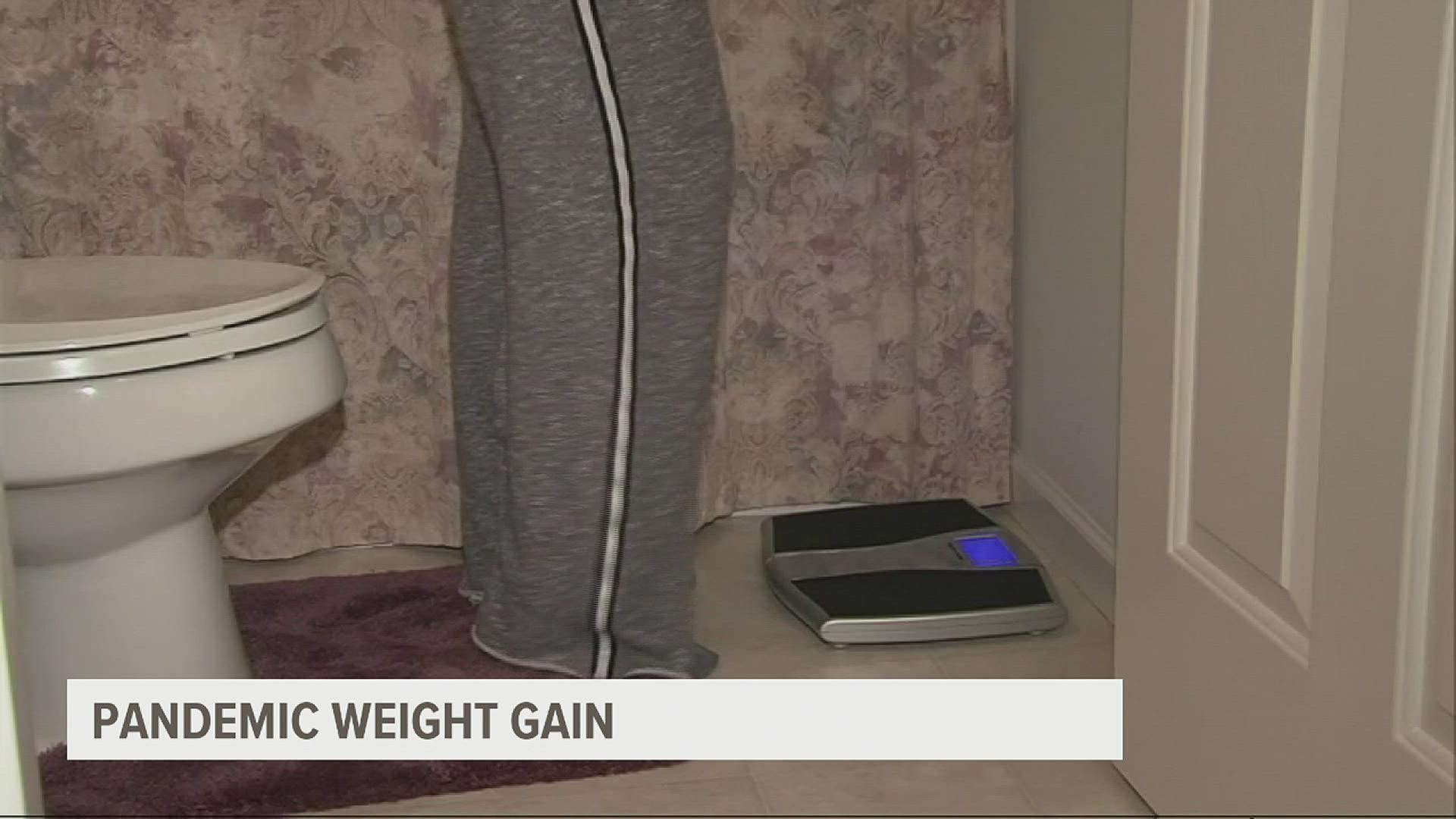YORK, Pa. — There's a good chance you've heard of people gaining the "Freshman 15" in college. Now, after nearly two years of dealing with the pandemic, people are talking about the "COVID 15," instead.
But did that many people really gain weight? A recent study says yes.
Harvard researchers studied 15 million people over the past 20 months to see if those so-called "COVID curves" were really a thing. They looked at patient weights over the course of the pandemic and as it turns out, 39 percent of them packed on some pounds. That means if you've been upset with the number you saw on the scale this morning, you're not alone.
So why did this happen?
Sure, gyms closed so we weren't as active and yes, many of us started getting more fast food drive-thru, but researchers say an even bigger factor for weight gain throughout the pandemic has been stress.
"That stress leads to elevated cortisol levels. Short term, that's not a big deal but if it's elevated for days at a time, that cortisol level increases your appetite and specifically increases your appetite for sweet, salty, fatty foods," said Health and Wellness Expert Dr. David Geier. He said there's also evidence that our bodies metabolize food more slowly when under stress. Dr. Geier has seen people gain anywhere from 5 to up to 30 pounds.
So if you're one of the millions of people trying to get back to the old you, here are some simple things to try. Whatever your weight goal may be, having a plan is key and experts say make sure it is sustainable and allows you to still live a little.
- Move your body in a fun way, every day. Mark it on your calendar and to-do-list so it has to get done.
- Eat more plants and fewer processed foods.
- Get enough sleep and try to go to sleep at the same time every night.
- Find a way to manage your stress. That can be through meditation, yoga, or exercise.

